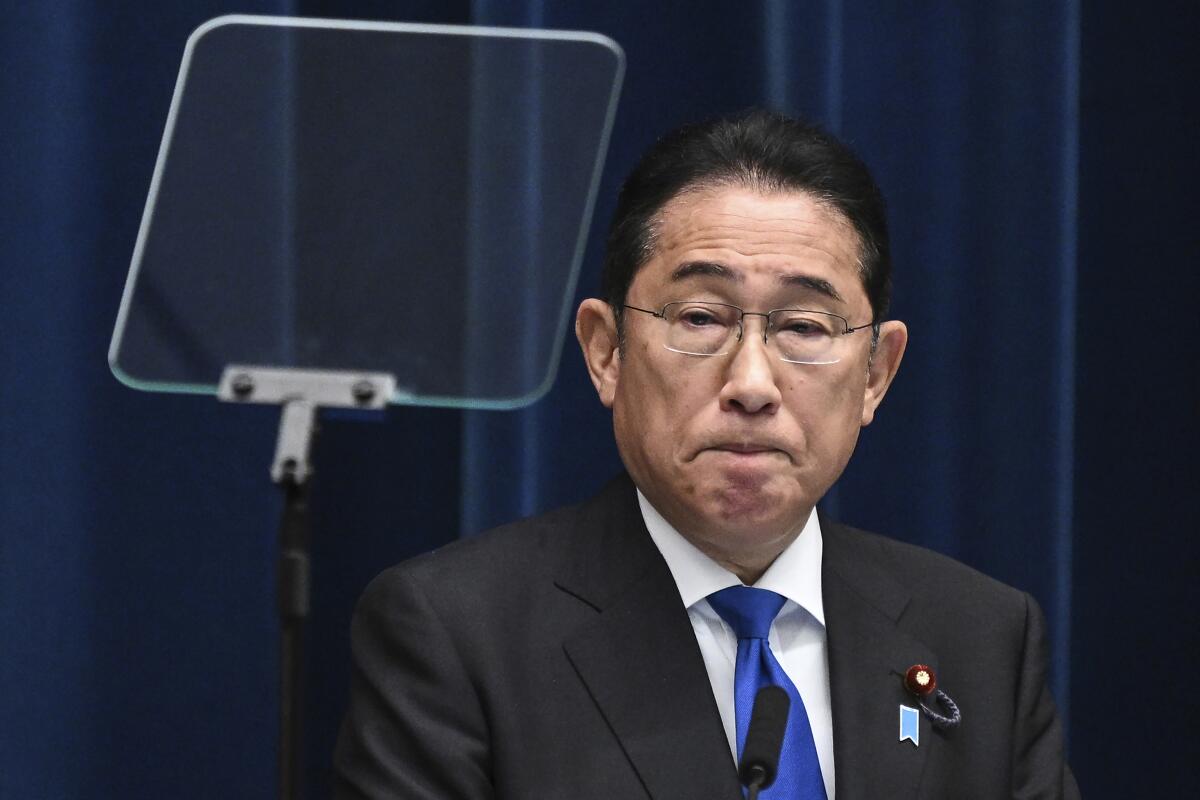In surprise move, Japanese Prime Minister Kishida announces plans to step down

TOKYO — Japanese Prime Minister Fumio Kishida, in a surprise move Wednesday, announced he will not run in next month’s party leadership vote, paving the way for Japan to have a new prime minister.
Kishida was elected president of his governing Liberal Democratic Party and became prime minister in 2021. His three-year term expires in September and whoever wins the party vote will succeed him as prime minister because the LDP controls both houses of parliament. A new face is a chance for the party to show that it’s changing for the better after corruption scandals, and Kishida said he will support the new leader.
“In order to show a changing LDP, the most obvious first step is for me to bow out,” Kishida said at a news conference.
Regaining public trust in politics is crucial for tackling difficult situations inside and outside Japan, said Kishida, whose support in opinion polls has dipped below 20%. He called on aspiring party lawmakers to hold policy debates during the campaign.
Kishida said he had been mulling resignation for some time but waited until he could put his key policies on track, including an energy policy that calls for a return to nuclear power, a drastic military buildup to deal with security threats in the region, and improving ties with South Korea.
Sign up for Essential California
The most important California stories and recommendations in your inbox every morning.
You may occasionally receive promotional content from the Los Angeles Times.
The U.S. ambassador to Japan, Rahm Emanuel, praised Kishida’s efforts in elevating the U.S.-Japan alliance to a new level by working closely with President Biden. especially in security, while developing separate trilateral agreements, one with South Korea and another with the Philippines, in the face of China’s growing influence. Biden and Kishida “literally wrote the organizing chapter of the next era,” he said.
But the leader of the main opposition Constitutional Democratic Party, Kenta Izumi, said Kishida may have given up on pursuing party reforms and the probe into the corruption scandals. “Whenever the party is in crisis, LDP, for its own survival, has repeatedly changed prime minister and party leader to reset and have voters forget the past,” Izumi said.
LDP executives are set to decide next week on the date for the party election, expected between Sept. 20 and Sept. 29.
Since the corruption scandal broke, Kishida has removed a number of Cabinet ministers and others from party executive posts, dissolved most party factions that were criticized as the source of money-for-favor politics, and tightened a political funds control law. Ten people — lawmakers and their aides — were indicted in January.
The scandal centers on unreported political funds raised through tickets sold for party events. It involved more than 80 LDP lawmakers, mostly belonging to a major party faction previously led by assassinated former Prime Minister Shinzo Abe. The assassination surfaced a scandal over the LDP’s decades-old, deep-rooted ties with the Unification Church, for which Kishida has also faced criticism.
Yamaguchi writes for the Associated Press.
More to Read
Sign up for Essential California
The most important California stories and recommendations in your inbox every morning.
You may occasionally receive promotional content from the Los Angeles Times.










